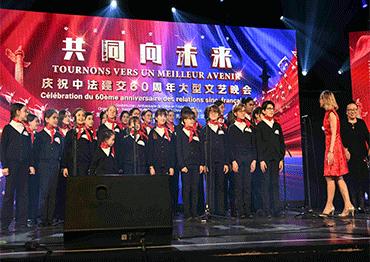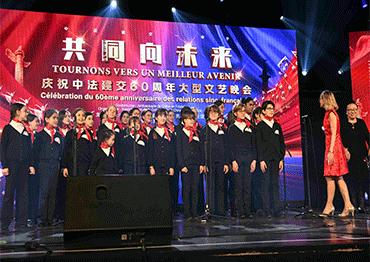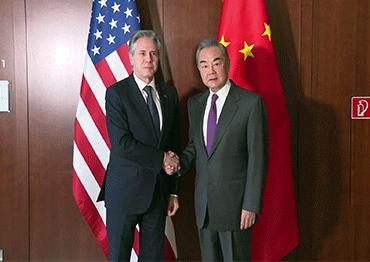This sentiment was reflected in the maxim “Lose-Lose?” adopted by the 2024 Munich Security Conference that took place from February 16 to 18. Attracting 900 participants, including some 50 heads of state and government and over 100 ministers, the annual event is the world’s leading forum to debate security affairs.
“Lose-Lose?” is also the title of this year’s MSC report, which warns that political fragmentation of the world could lead to a downward spiral of “self-perpetuating rivalries” and give rise to “lose-lose” dynamics, pushing governments to focus more on relative gains rather than absolute gains, and mutually beneficial cooperation. Cautioning that “relative-gains” thinking will be “unavoidable” in a much more competitive geopolitical environment, the report called for European countries to “revive positive-sum cooperation.”
“This year, the atmosphere in Munich was one of particular gravity. With two wars on its doorstep, and many other powder kegs all over the world, everyone was finally aware that Europe is in danger,” wrote Josep Borrell, EU’s top diplomat in a blog post on the official website of the EU’s diplomatic service on February 25.
Lamenting that “the era of Western dominance has indeed definitely ended,” Borrell warned that “if the current global geopolitical tensions continue to evolve in the direction of ‘the West against the Rest,’ Europe’s future will be bleak.
In the past months, there has been noticeable divergences between European countries and the US regarding global issues. As the US faced growing isolation due to its pro-Israel stance regarding the humanitarian crisis in Gaza, the EU has become increasingly uncomfortable about its alignment with the US on the issue. In his blog, Borrell highlighted that “many in the ‘Global South’ accuse us of ‘double standards,’” and warned that the problem cannot be addressed with just words. “We must make a massive effort to win back the trust of our partners,” Borrell said.
Even on the Russian-Ukraine conflict, an issue over which the EU and the US are firmly aligned, the prospect that former president Donald Trump could be re-elected is a major concern for European leaders. Trump’s remarks that he might pull the US out of NATO have caused significant anxiety in Europe in the security realm, and the failure of the US Congress to pass a new aid package to Ukraine has led to major frustration.
Europe also finds itself in a dilemma regarding how to engage with China. “Europe and the US are also not entirely aligned on issues regarding China,” wrote Sun Chenghao, a research fellow at the Center for International Security and Strategy of Tsinghua University in an opinion piece published on chinausfocus.com on February 21. Sun, who participated in this year’s Munich Security Conference, said during a session discussing “Aligning Transatlantic Tech Governance” that European panelists directly challenged US panelists’ opposition to transferring AI technology to China, arguing that China is indispensable in promoting global governance on AI.
Europe’s rising anxiety over the Washington-initiated political fragmentation and its apparent reluctance to completely align with the US did not go unnoticed by US officials attending the MSC.
When asked during a public forum at the MSC session whether the US was being challenged in Europe as US-China tensions have led to greater fragmentation, Blinken said “if you’re not at the table in the international system, you’re going to be on the menu,” adding that Washington had “re-engaged multilaterally.”
Blinken’s comments immediately drew strong criticism from China’s State media for applying the “law of the jungle” to its championed “rules-based international order.” Speaking with the South China Morning Post, Josef Gregory Mahoney, a professor of politics and international relations at the Shanghai-based East China Normal University, said Blinken’s remarks were a warning to US allies, especially some European countries which had sought more stable relations with China.
“The targets of the expression are definitely European countries who’ve tried to hedge to some extent in their relationship with China... and other countries, realizing that following the American strategy of so-called de-risking or decoupling will only leave them reduced,” said Mahoney, as quoted in the SCMP article published on February 24.

 Old Version
Old Version



